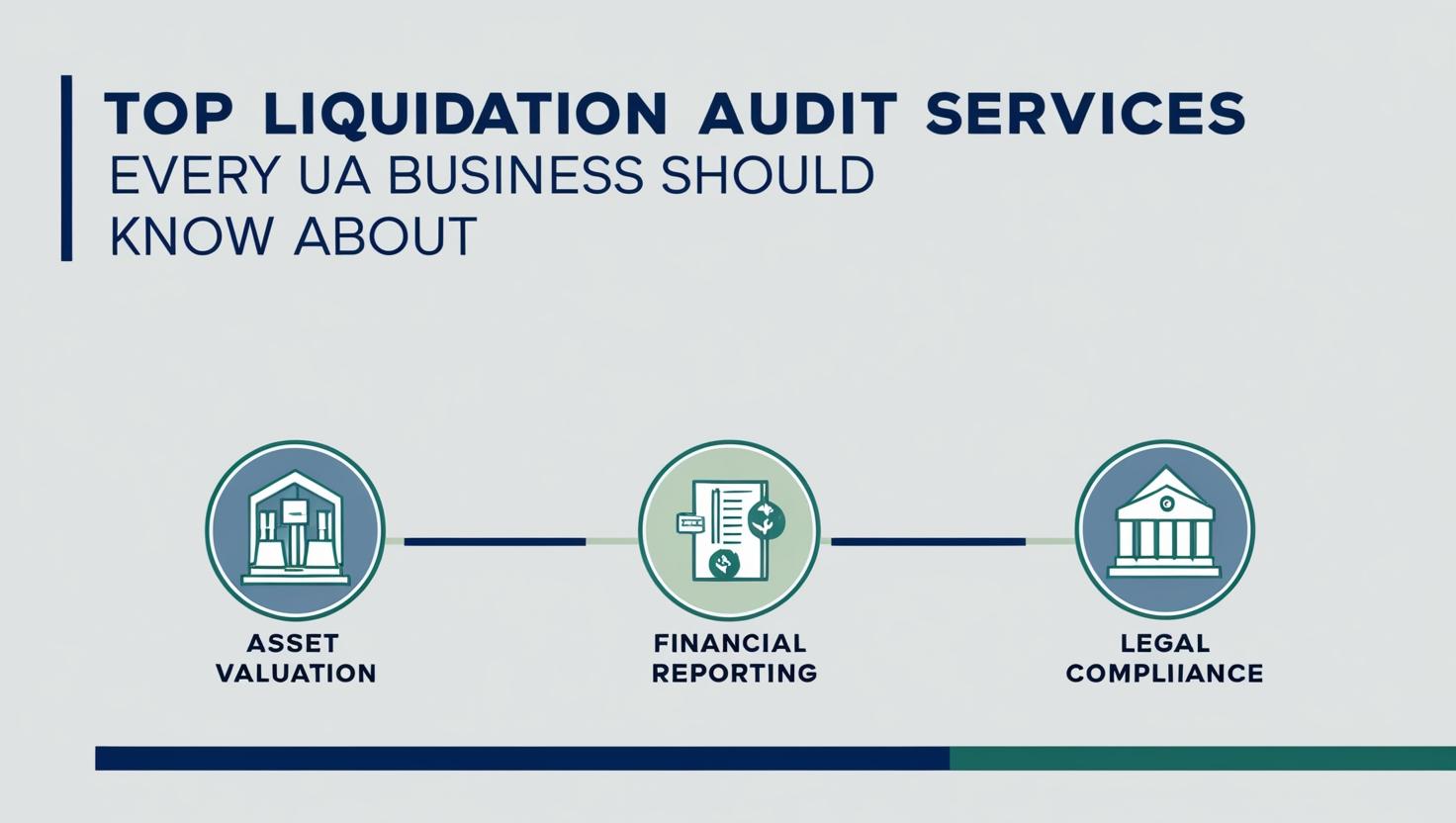 YOUNG AND RIGHT
YOUNG AND RIGHT ACCOUNTING & TAX CONSULTANCY
From corporate tax registration to audits and bookkeeping, Young & Right offers personalized solutions that keep your business compliant and stress-free. Let’s take the complexity off your plate—starting with a free consultation.
Book Your Free Consultation
Liquidation audits are a critical step for any company preparing for business closure in the UAE. They ensure that the liquidation process adheres to all regulatory requirements, allowing businesses to wind down operations while safeguarding the interests of all stakeholders, including creditors, investors, and government authorities.
A thorough liquidation audit ensures full compliance assessment, offering clarity on the company’s financial position and preventing future legal obligations. The best liquidation audit services ensure:
Verification of all financial statements, bank accounts, and financial transactions for transparency
Adherence to UAE regulations, local laws, and the UAE Commercial Companies Law
Ensuring debt settlement and proper asset valuation and distribution
Faster processing with no delays, ensuring a smooth business closure
When selecting liquidation audit services, UAE businesses should consider:
Firms with extensive expertise in company liquidation audits offer better control over the liquidation process, whether it's a voluntary liquidation or a compulsory liquidation.
From the Federal Tax Authority (FTA) to Free Zone Authorities, top firms ensure compliance with every relevant body, issuing proper liquidation reports and filing with relevant authorities.
Whether you're in real estate, healthcare, retail, or manufacturing, your auditor must understand your business operations, leasing entity issues, and utility companies relations to provide targeted insights.
Clear audit reports and final liquidation reports help explain outstanding liabilities, financial obligations, and remaining funds to business owners and other stakeholders.
Top liquidation service providers use automation and cloud accounting tools to reduce human error and manage the audit process efficiently.
Understanding the distinction between Free Zone and Mainland liquidation audits is crucial for any business planning a business liquidation in the UAE. While both setups share the common goal of ensuring a compliant and smooth liquidation process, each follows its own set of legal requirements and procedures that affect how company liquidation is executed.
The end goal in both cases remains the same: complete regulatory compliance, transparent audit reporting, and the proper handling of remaining assets, outstanding liabilities, and obligations to other stakeholders.
Companies operating in Free Zones such as Dubai Airport Freezone, Jebel Ali Free Zone (JAFZA), and Dubai International Financial Centre (DIFC) must comply with audit and closure rules defined by their respective Free Zone authorities. Although these businesses enjoy benefits like 100% foreign ownership and tax exemptions, they are still subject to a detailed liquidation process that includes:
→ Appointment of an independent auditor to conduct the liquidation audit
→ Comprehensive asset valuation of the company’s assets, including physical and intangible holdings
→ Preparation of a final audit report reflecting the financial position of the business
→ Submission of all relevant documents, including board resolutions and creditor clearance letters
→ Proper notification and coordination with other stakeholders, such as landlords, suppliers, and employees
→ Settling outstanding liabilities and distributing remaining assets as per legal priority
→ Cancellation of licenses, closure of bank accounts, and final deregistration
Free Zone liquidation services must also ensure that the company’s operations are completely wound down and no future claims are left unresolved.
Company liquidation for mainland businesses, especially those registered under the Dubai Economic Department (DED)—follows a more centralized and federally governed path. These businesses must align with UAE Commercial Companies Law and undergo more detailed scrutiny during the liquidation process.
Mainland companies must complete the following:
→ Engage a licensed independent auditor to verify financial position through in-depth liquidation audit
→ Provide updated financial statements, debt ledgers, and asset registers as part of the relevant documents
→ Execute asset valuation to ensure fair market disposal and distribution
→ Clear all tax obligations and submit required filings to the Federal Tax Authority
→ Settle all outstanding liabilities before initiating deregistration
→ Finalize documentation related to employee dues, lease cancellations, and company’s operations wrap-up
→ Distribute remaining assets in accordance with shareholder rights and creditor priorities
When navigating the company liquidation process in the UAE, choosing a top-tier audit firm can make a significant difference. The leading providers of company liquidation services offer comprehensive, tailored solutions for businesses undergoing either voluntary liquidation or compulsory closure, ensuring compliance, accuracy, and minimal disruption.
What Top Firms Provide:
Whether your business is opting for voluntary liquidation or undergoing forced closure, expert firms guide you through every step of the company liquidation in Dubai framework. This includes advisory on legal compliance, proper dissolution procedures, and managing stakeholder obligations.
Reputable firms offer end-to-end liquidation services, which typically include:
→ Asset sale and valuation of the company's assets
→ Settlement of outstanding liabilities
→ Review and closure of financial records
→ Issuance of the provisional liquidation certificate
→ Final clearance with relevant authorities
This comprehensive approach ensures that every stage of the liquidation audit process is efficiently handled in line with UAE regulations.
Top companies offer liquidation services in Dubai tailored to both free zone companies and mainland entities. With in-depth understanding of financial compliance and risk mitigation, they help reduce the financial burden often associated with the company liquidation process while ensuring timely and lawful business closure.
By comparing the best audit and liquidation audit firms, businesses can choose partners who understand local laws, minimize cost and time, and ensure a smooth transition from operation to official closure.
Young and Right is a leader in expert liquidation audit assistance services. We support businesses across the UAE with:
From company’s financial records review to settle outstanding debts and issuing the liquidation audit report, we manage everything.
We serve sectors like retail, healthcare, services, and manufacturing, making us one of the best company liquidation services providers for businesses large and small.
We ensure your company liquidation in Dubai or any other emirate is fully aligned with UAE regulations, international auditing standards, and legal requirements.
We understand that time is crucial. Our accurate and clear comprehensive audit services expedite the company closure process.
Our tailored support helps every client from SME to large enterprises, close their business smoothly, even amid financial distress or complex asset distribution needs.
Choosing the right liquidation audit firm is not just a formality, it determines the success, legality, and efficiency of your company’s liquidation process. Whether you are managing physical assets, finalizing your financial statements, or coordinating with UAE government authorities, the support of an experienced, approved, and reliable partner is invaluable.
At Young and Right, we are more than an audit firm, we are your trusted partner in achieving a smooth liquidation process with complete regulatory assurance. Contact us today to begin your company liquidation the right way.
Partner with industry leaders to manage your company’s liquidation process with full compliance and transparency. Don’t leave your business closure to chance, trust the experts.
Get Your Free Consultation Today